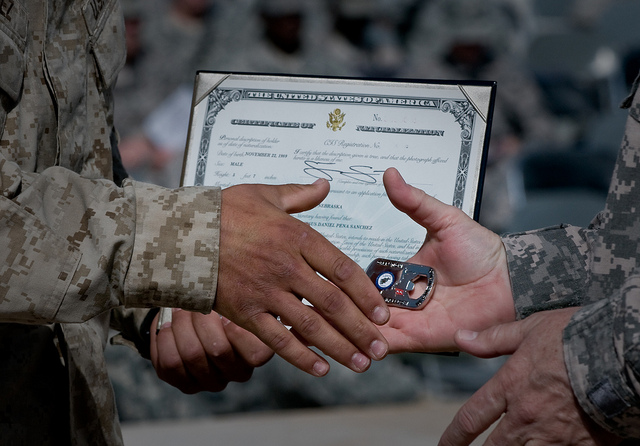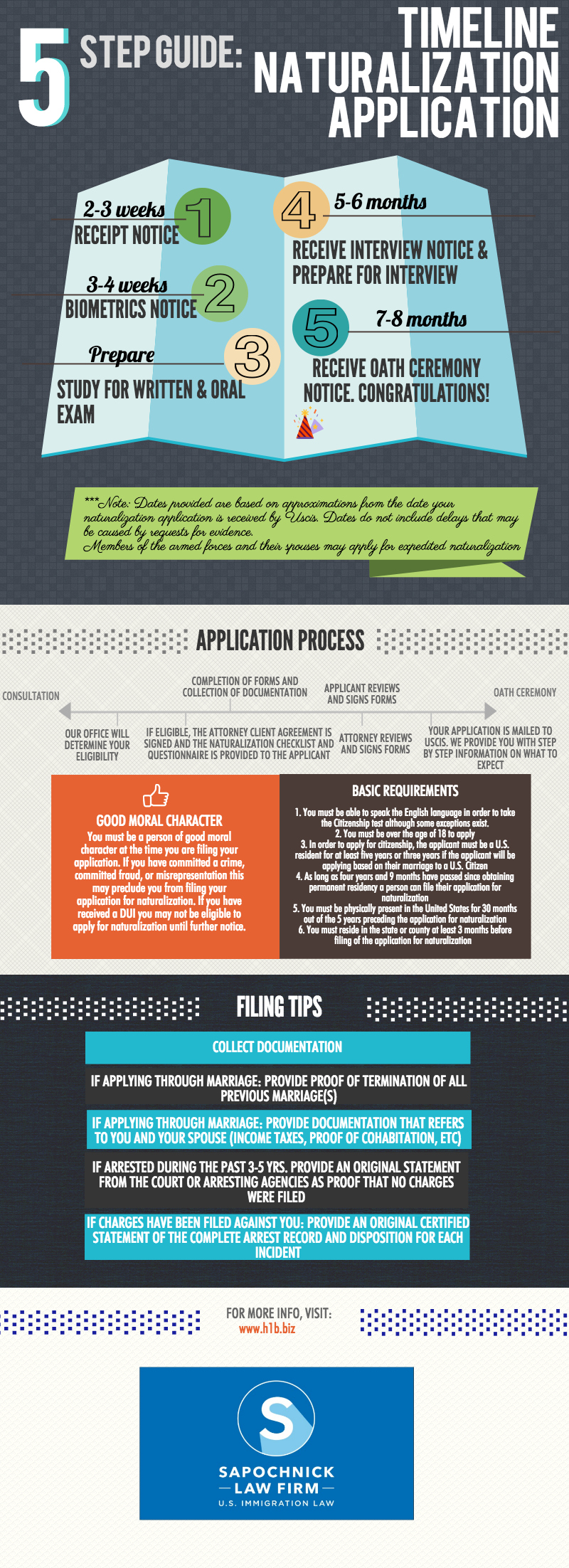The eventual goal of most immigrants, residing in the United States temporarily, is to gain United States Citizenship, and later to immigrate their immediate relatives to the United States. It is very difficult however to obtain U.S. Citizenship, and there are important requirements that must be satisfied before applying. For starters, you must meet the minimum age requirement to apply, you must also be a legal permanent resident (LPR) of the United States (green card holder) for a certain period of time before you may apply. In addition, you must prove that you have maintained your legal permanent resident (LPR) status by demonstrating that you have remained continuously physically present in the United States. Lastly, you must be competent in the English language, and be a person of good moral character in order to apply for U.S. Citizenship. There are many valuable benefits conferred to U.S. Citizens. The most important benefit is that U.S. citizens are entitled to protection from the United States government in exchange for their allegiance to the country. Secondly, unlike green card holders, U.S. Citizens may leave the country and travel abroad for any length of time without having to worry about returning to the United States to maintain their immigration status. U.S. Citizens can also apply for immigration benefits for their immediate relatives and other family members more quickly than legal permanent residents. Legal Permanent Residents may also lose their immigration status and risk removal from the United States if they are convicted of serious crimes such as crimes of moral turpitude. U.S. Citizenship is also required for many jobs in the United States including law enforcement. Generally, there are also greater employment opportunities for American Citizens.
When applicants sign the N-400 application for naturalization they are promising to support the United States constitution, obey all of the laws of the United States, renounce foreign allegiances and/or foreign titles of nobility, and bear arms for the Armed Forces of the U.S. or to perform services for the U.S. government when called upon. The N-400 oath of allegiance must be taken very seriously. If you are not prepared to support the U.S. Constitution and bear arms for the U.S., you should not apply for citizenship.
General Naturalization Requirements
In order to apply for naturalization, applicants must satisfy all of the requirements below except for members of the armed forces and their immediate relatives. Members of the armed forces may apply for expedited naturalization as indicated below.
- Language Requirement: You must be able to read, write, speak, and understand the English language in order to take the Citizenship test, although exemptions exist for certain applicants.
Applicants who are exempt from the language requirement are those who at the time of filing their naturalization application:
- have been residing in the United States subsequent to a LPR status for periods totaling 15 years or more and are over 55 years of age;
- have been residing in the United States subsequent to a LPR status for periods totaling 20 years or more and are over 50 years of age; or
- have a medically proven physical or mental impairment, where the impairment affects the applicant’s ability to learn English;
- Age Requirement: You must be at least 18 years old in order to apply for naturalization;
- Residency requirement: A person must be a U.S. legal permanent resident for at least five years before they may apply for U.S. Citizenship OR three years if the person obtained their green card based on their marriage to a U.S. Citizen and they are still married to the same person through which they gained permanent residence. In general, as long as four years and 9 months have passed since obtaining permanent residency a person can file their application for naturalization;
- Residence and Physical Presence Requirement: You must be physically present in the United States for 30 months out of the 5 years preceding the application for naturalization;
You must demonstrate that you have been living in the U.S. continuously as a LPR for at least 5 years prior to filing, without an absence from the United States of more than one year (single absence);
You must reside in the state or county at least 3 months before filing of the application for naturalization;
- You must demonstrate that you are a person of Good Moral Character:
You must be a person of good moral character at the time you are filing your application for naturalization.
If you have committed a serious crime, aggravated felony, fraud, or misrepresentation, this may preclude you from filing your application for naturalization, in some cases (such as fraud or willful misrepresentation) a waiver may be filed in your defense. For serious crimes such as murder or aggravated felonies there is no relief. If you have received a DUI you may not be eligible to apply for naturalization. If there are tax liens against you or you are behind in child support payments, you may not apply for naturalization until you have resolved these issues. If you have a criminal history or have committed any immigration violations, you should contact an attorney before applying. You must disclose all criminal history and immigration violations to USCIS. Remember that you are signing the application for naturalization under penalty of perjury;
- Good Moral Character:The applicant must generally show that he or she has been a person of good moral character for the statutory period (typically five years or three years if married to a U.S. citizen or one year for Armed Forces expedite) prior to filing for naturalization.
- Criminal Prohibitions: The applicant is permanently barred from naturalization if he or she has ever been convicted of murder, or of an aggravated felony as defined in section 101(a) (43) of the Act on or after November 29, 1990. During the statutory period, those who indulge in habitual, heavy drinking; practice polygamy; willfully fail to support their dependents; have been confined to penal institutions; among other such acts, cannot be regarded as persons of good moral character and thus may be barred from applying for naturalization.
- Knowledge of the United States Government and History:All applicants for naturalization must be able to demonstrate basic knowledge and understanding of the history of the United States, and of the principles and form of government of the United States. Some applicants may be exempt from this requirement such as those who have medically proven physical or mental impairment, where the impairment affects the applicant’s ability to learn. An applicant’s ability to read, write, speak, and understand the English language, as well as knowledge of U.S. government and history will be determined at the time of the interview for Naturalization.
Applicants who have been residing in the U.S. subsequent to a lawful admission for permanent residence, for at least 20 years, and are over the age of 65 are afforded special consideration in satisfying this requirement.
Special Considerations for Military and Other Individuals
Members of the armed forces receive special consideration when applying for citizenship. They are not required to meet all of these requirements
Individuals of a certain age who have spent a certain amount of years in the U.S. also receive special consideration for example they are exempt from the language requirement. To learn more about naturalization for members of the armed forces, please contact our office.
What to Expect Upon Filing the N-400 Application for Naturalization
Once the application for naturalization is filed, applicants can expect the following to occur from the date the application is received from USCIS. These timeframes apply to regular filing as opposed to expedited filing for members of the armed forces. Please note that timeframes may vary according to where you live and special circumstances surrounding your case (requests for evidence, criminal convictions, etc).
Timeline of Naturalization
- Within 2-3 weeks of filing, the applicant will receive a receipt notice in the mail also known as a ‘Notice of Action’ indicating that the application has been received and is processing normally. The receipt notice will also contain the receipt number for the application. You may track the status of your application on the USCIS website;
- Within 3-4 weeks of filing, the applicant will receive the biometrics appointment notice requesting the applicant to appear at an ASC office for fingerprinting. At this time the applicants photo and signature will also be captured. The applicant must present a valid government issued photo identification at the time of the appointment;
- Once the biometrics appointment notice is received the applicant should begin to prepare for the Civics Examination which will occur at the time of the naturalization interview. Applicants may obtain study material at the ASC appointment at the time of the biometrics appointment. Study material is also found on the USCIS website.
- Within 5-6 months of filing, the applicant will receive their naturalization interview notice in the mail. The applicant must collect the necessary documentation and prepare for the naturalization interview. As part of the attorney fee, our office prepares clients for their naturalization interview. If the interview is conducted within San Diego county, an attorney from our office will attend the naturalization interview with the applicant.
- If all goes well and the applicant is approved following the naturalization interview, the applicant will receive their oath ceremony notice within 7-8 months from the date of filing of the naturalization application. The applicant will appear on the scheduled date and take the oath of allegiance. At this time the applicant will receive their Certificate of Naturalization.
To learn more about naturalization please visit our website. To schedule a consultation please contact us.
 Visa Lawyer Blog
Visa Lawyer Blog



